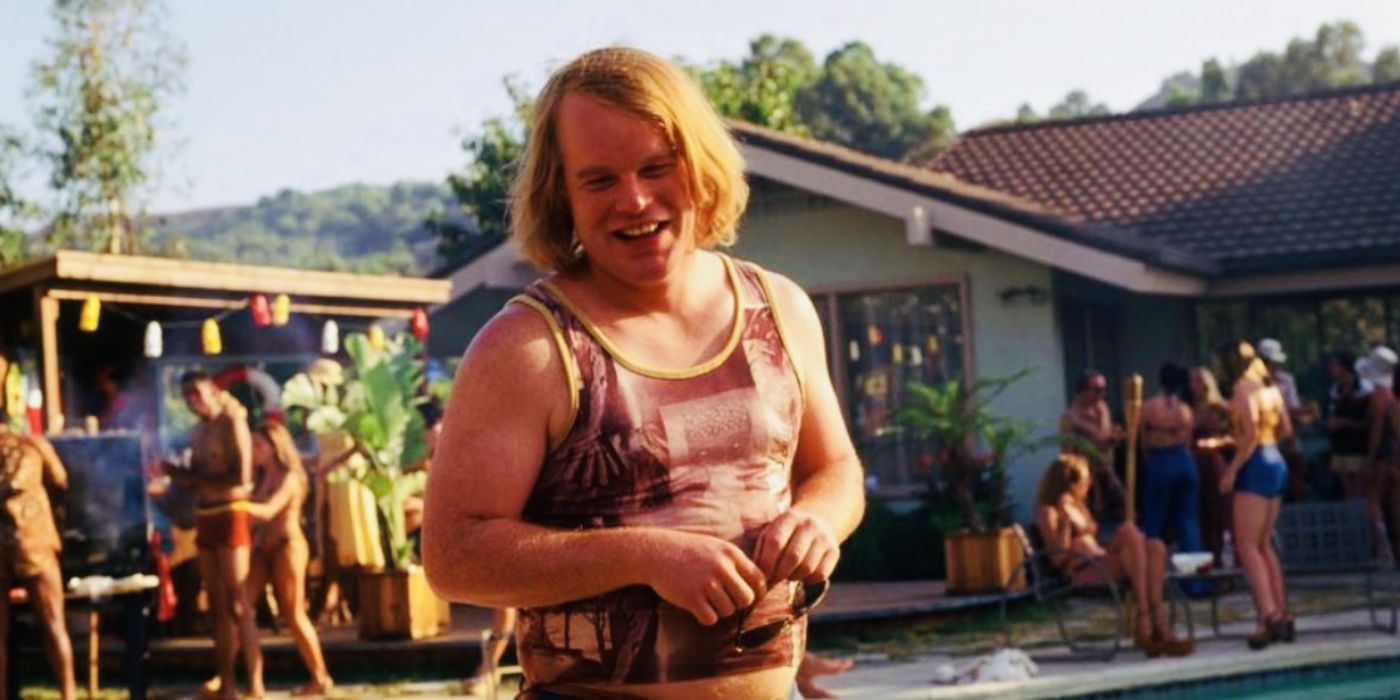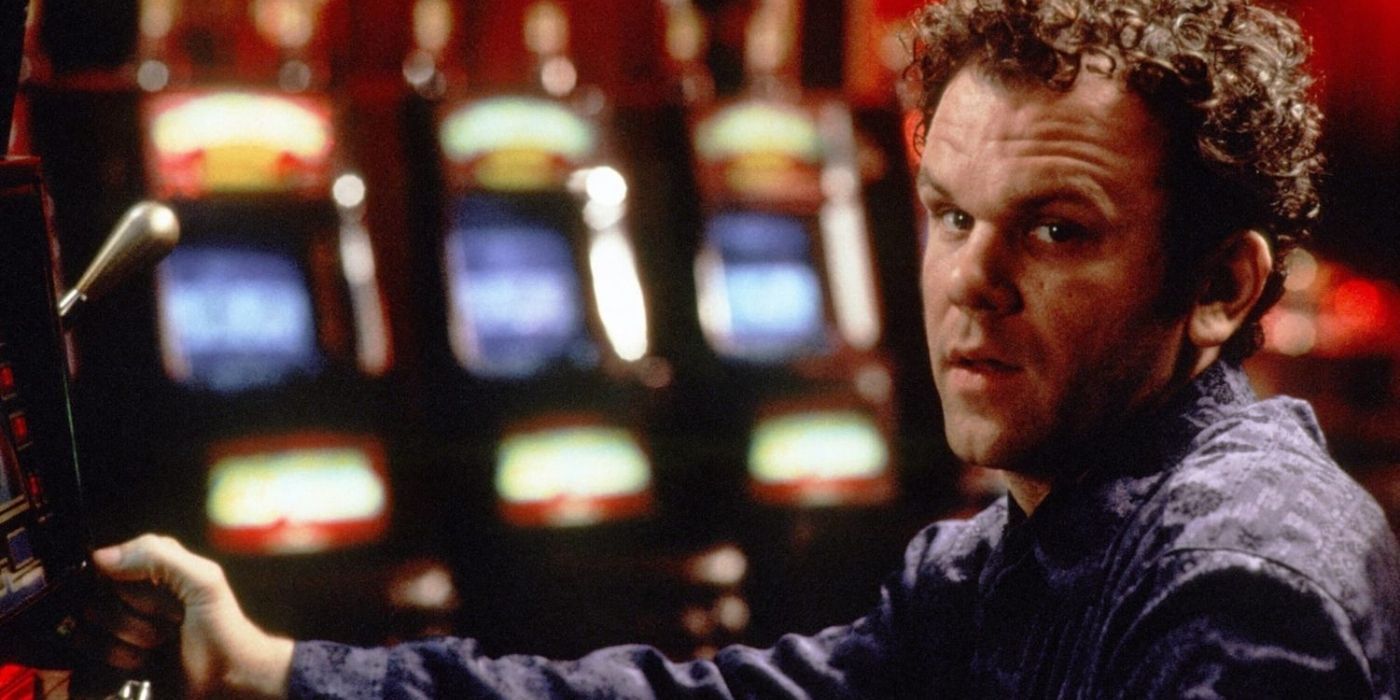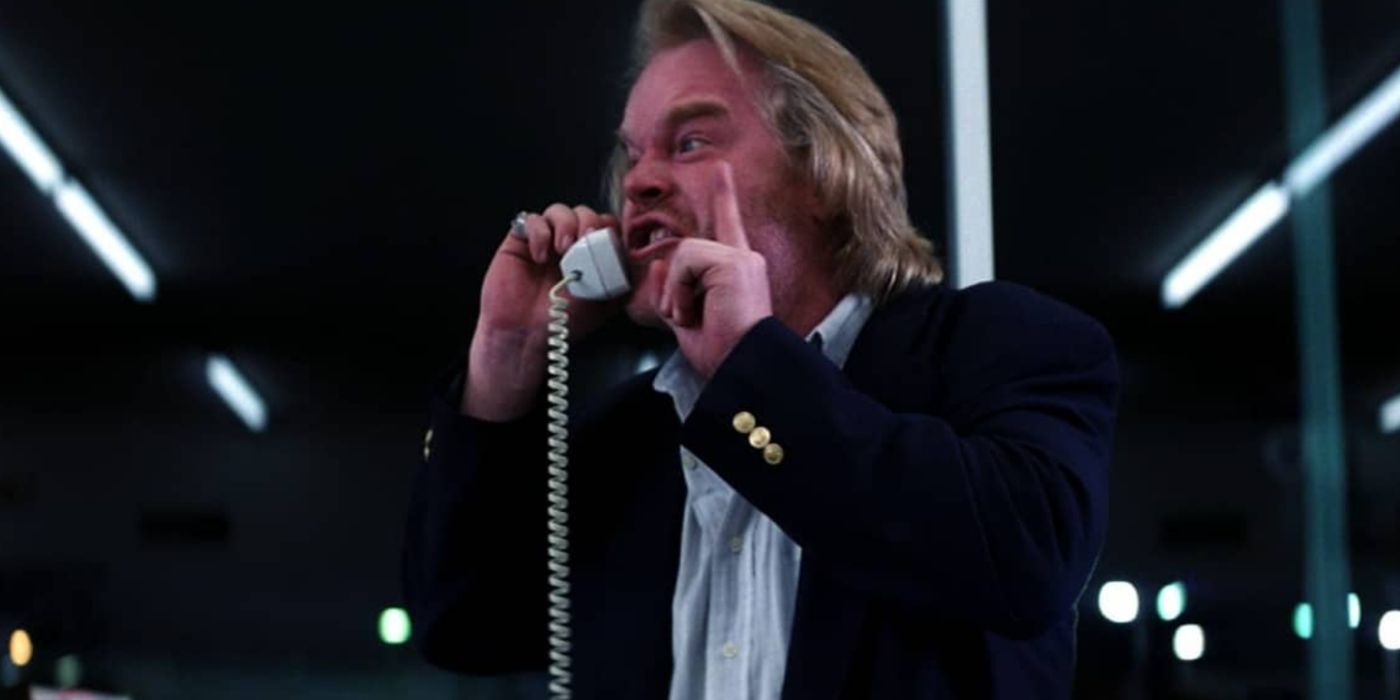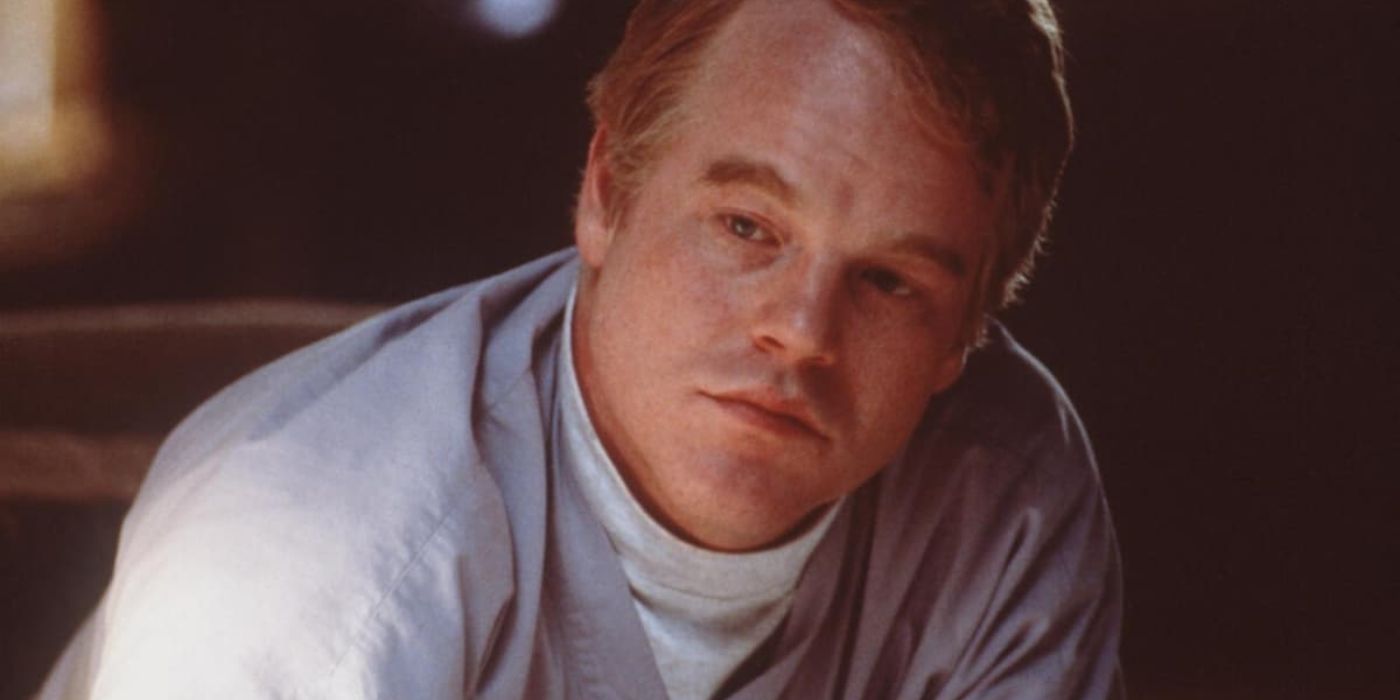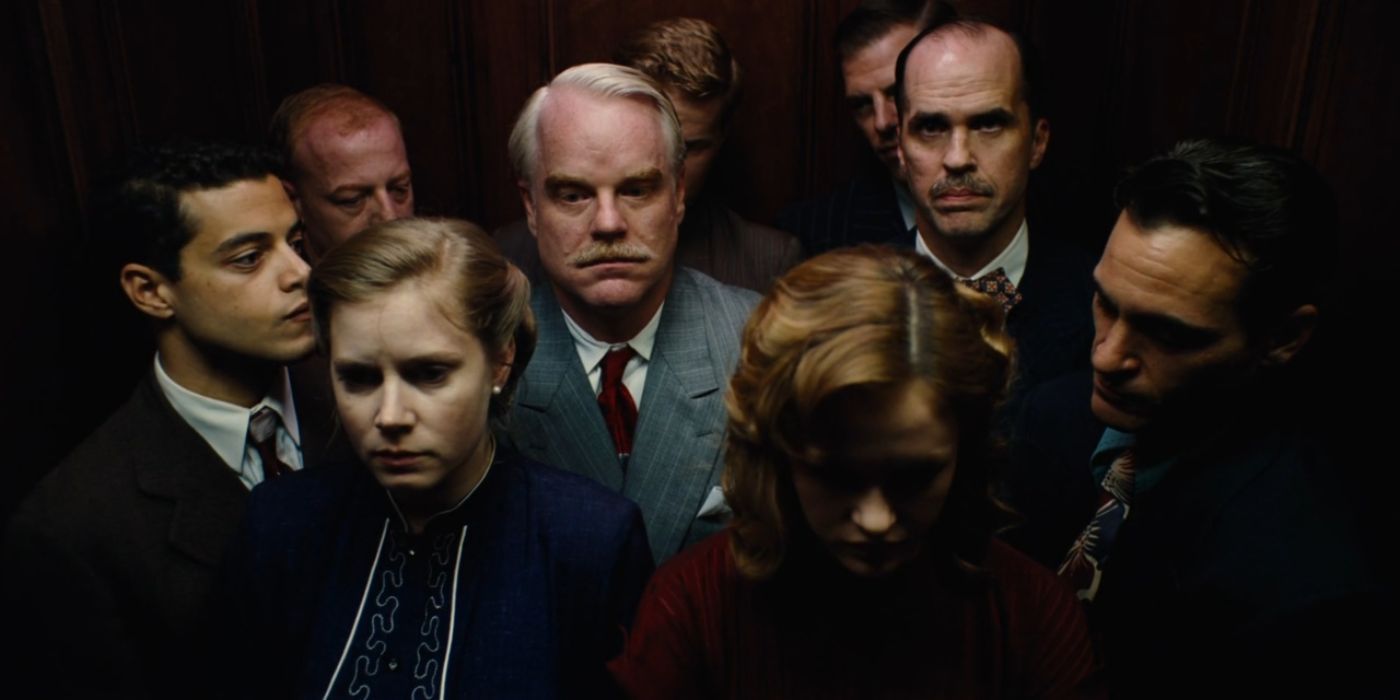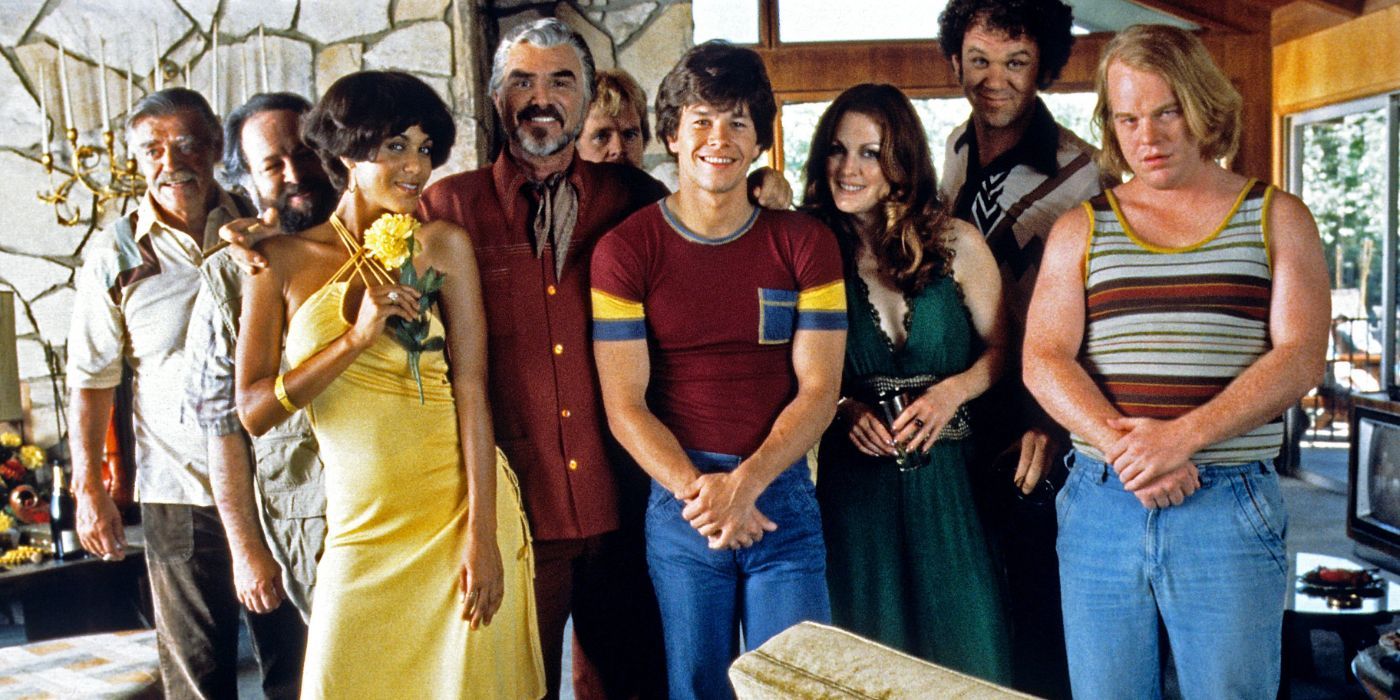Philip Seymour Hoffman and Paul Thomas Anderson have created many great movies together ever since Hard Eight. Hoffman took part in many cult classics from the '90s, such as The Big Lebowski and Anderson's Boogie Nights, where he established himself as an efficient scene stealer. He also proved himself to be a versatile actor, playing dystopian rebel, Plutarch Heavensbee, in The Hunger Games franchise to the real-life writer Truman Capote in Capote (a role that earned him a deserved Best Actor Academy Award). Hoffman appeared in over thirty feature films throughout his career, five of them from Anderson.
Anderson's movies don't have an exact formula and his fans never know what to expect; with nine films completed, Anderson provided plenty of rewatchable movies that range from lighthearted coming-of-age stories, such as Licorice Pizza, to sophisticated period movies about love and obsession, which is the case of Phantom Thread. Apart from the unquestionably excellent movie streak, another Anderson trademark is the Hoffmans, which includes not only Philip Seymour but also his son, Cooper Hoffman, who made his debut in movies with Licorice Pizza in 2021, carrying on his father's legacy and long-term partnership with Anderson.
5 Hard Eight (1996)
Hard Eight is Paul Thomas Anderson's first movie and although it clearly sets the path for a promising career, the film has issues with finding its own voice in a mix of genres. In a scenario ruled by gamblers, sex workers, and lots of money going in and out, a puzzling casino regular takes a star-crossed better under his wings. It's difficult to tell whether Hard Eight is a crime film, a gambling story, or even a neo-noir like No Country For Old Men (even though the movie definitely flirts with all these subgenres).
Although it fails to find a consistent tone, Hard Eight definitely nails its message: it's a brutal story about burden and regret, with each of its characters bonded by the looming menace of their past. Anderson had specific actors in mind for each character, including Hoffman, which explains why they are all so in sync with each other and the narrative. In an interview with Rolling Stone, Anderson recalls that Hoffman improvised most of his scenes, bringing substance to a film that often relies a bit too much on its performances.
4 Punch-Drunk Love (2002)
Punch-Drunk Love is Anderson's weirdest movie and Hoffman's performance is effectively abnormal. In one of his most relevant and dramatic roles, Adam Sandler plays one of his most likable characters: Barry, a socially awkward man who gets caught up in a dangerous scam while in pursuit of his one true love. The film quickly escalates into absolute chaos, where small things take massive proportions and the characters uncomfortably cross paths. Hoffman steals the show to himself, playing the sleazy and unpredictable villain.
Punch-Drunk Love is Anderson's most poorly received movie with 79% on Rotten Tomatoes, which is still a notably high score among critics. The film establishes an uncomfortable and haywire atmosphere from the get-go; an effective attempt to show the world from Barry's disordered perspective, but it's a strategy that can feel too clumsy for those expecting a traditional black comedy.
3 Magnolia (1999)
One of Anderson's highest-rated movies, Magnolia seems to predict the turn of the millennium as a representation of the century's angst; a timeless pursuit for simple things that are far out of reach, be it love or happiness. Ending Anderson's promising '90s decade, the film delivers an intricate mosaic of characters who are forced to get out of their fabricated little worlds. To do that, Magnolia often crosses the boundaries between reality and fantasy, and a scene featuring a frog storm symbolizes that collision of fiction and reality.
The characters and their journeys of self-discovery deliver many surprising moments, but, most importantly, it offers a star-studded cast and their respective best performances, including William H. Macy, John C. Reilly, and Tom Cruise, who even got an Oscar nomination for his role. Hoffman is also great in Magnolia, which is a generally ambitious and highly philosophical film. However, the long-running time and slow pace may be too much for some.
2 The Master (2012)
The Master offers the best showcase of Anderson and Hoffman completely in sync with each other, in a movie where every character looks broken in some way. The film follows Freddie, played by Joaquin Phoenix, a Naval veteran, who has been deeply affected by the war and is uncertain future ahead. He meets Lancaster, played by Hoffman, a mysterious man who forms a new kind of religion. The relationship between the two characters is a mix of enlightenment and dismay; the two seem two understand each other too well, and Freddie's fragile state of mind is quickly swayed by Lancaster's beguiling proposals.
The Master's quotes and messages aged well, but most importantly, there wouldn't be The Master without Hoffman. His character is a silent menace and a man who understands how the war affected the men around him; he pulls every string in the narrative and turns Freddie into a puppet. Hoffman earned a deserved Oscar nomination and Anderson's game of manipulation is cold and brutal: The Master stands out as his best character study.
1 Boogie Nights (1997)
It's difficult to believe Anderson pulled off such a fantastic portrayal of the '70s when he was only 26 years old. Boogie Nights is a roller coaster of emotions that initially amazes with its myriad of colorful and electrifying characters, then turns into an unstoppable nightmare as the characters witness their dreams shattering. The film is highly inspired by the rising adult film industry in the '70s, adapting real-life events from John Holmes' career to Eddie Adams's arc, the main character.
Hoffman plays an insecure man whose repressed feelings quickly affect the lives of those around him. Anderson takes his time to address the drama of each character separately until they clash and begin to snowball. While Boogie Nights focuses primarily on the pornographic industry, the film has a little bit of everything from Los Angeles in the '70s, from the life of sex workers to the ever-changing Hollywood.

